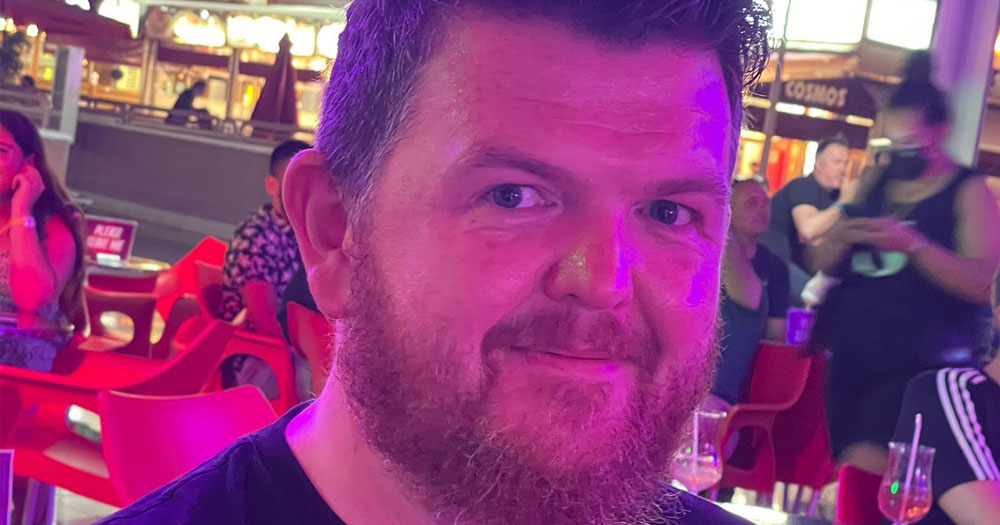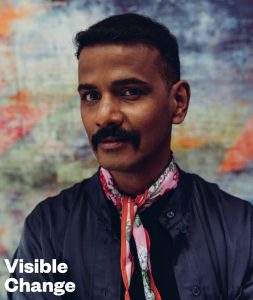I clearly remember one of the early occasions when I recognised that my weight and the shape of my body was making me a target. I was 17 years-old and it was one of those lost days between Christmas and New Year’s where as a painfully shy and anxious teenager all I wanted to do was stay home and play snake on my brand new Nokia 5510. Instead, I was being dragged resentfully to a family gathering in my granny’s house, a smallish ex-council house in the suburbs of Dublin.
The rooms were packed with an assortment of aunts, uncles, cousins, and random unrelated people. It was roasting hot; the windows dripped with condensation. I was over-heated and could feel sweat forming on my back but was too anxious to take my jumper off as I couldn’t be sure that it wouldn’t drag up my t-shirt too and reveal my belly as I did.
https://twitter.com/jameso_hagan/status/1443951991839920128
Sat amidst a group of the ‘younger’ relatives I was keeping my head down, nervously unpeeling the marzipan off a piece of Battenburg when one of the assembled adults, I didn’t even know their name, stuck their head in the door to say hello and commented that they wouldn’t have recognised me without some kind of snack in my hand, much to the amusement of everyone else in the room.
I was frozen in shame.
My teenage years were spent trying to make myself invisible -I stayed quiet, looked at the ground as I walked, sat out of the way in school, wore ‘slimming’ dark colours, avoided eye contact and rejected any form of social life – but no matter what I did to conceal my body my weight drew people’s attention and gave them carte blanche to criticise, mock or advise me of how I needed to change.
If I am feeling particularly self-loathing, I can still access those moment of humiliation and shame – I’ve sat in it for years. Berating myself, judging myself and scrutinising every inch of myself looking for proof of what it was that I did to deserve to be singled out in that way. The problem is the harder you look the more reasons you find.
Over the course of the next 23 years in a relentless pursuit of acceptance I’ve lost and gained more weight than I could even begin to calculate. Every new diet I started from a place of “and then I’ll be good enough” – and when that’s the bar you are setting yourself, failure is both inevitable and devastating.
In hindsight, the purpose of the ‘dieting’ was never the weight lost, it was proving I was a worthwhile person deserving of all the things I’d seen others allowed to have without judgement. There are many reasons why you might choose to begin a weight loss journey, but if the main one is “it will make me a better person”, that’s a problem.
https://twitter.com/jameso_hagan/status/1420625918641463301
I’ve begun a long journey of unpicking my sense of selfworth from the number of X’s on the size tag of my clothes, but so long as fatness remains an area that can be mocked without repercussions and while the shaming, stereotyping, stigmatising and normalisation of fat = bad is baked into every aspect of our society it’s going to be virtually impossible for fat people not to tie their value to their size.
Within the queer community, and particularly among MSM folk, there is a well-documented link between body image dissatisfaction, poor self-esteem and the feelings of not belonging as part of the gay community. As a fat person in the gay community feeling merely tolerated or unwelcome in spaces which are supposed to offer safety is something I am all too familiar with.
Dating apps reinforced the feeling that bigger bodies are to be despised, and memes shared on Instagram send a clear message that fat people are still the butt of the joke. For a community which knows all too well what it feels like to be an outsider we need to make ourselves more aware of the signals we are giving and hold ourselves accountable to the impact we can have on other people’s lives.
This article on body image originally appeared in GCN issue 368, which can be read in full here.
© 2021 GCN (Gay Community News). All rights reserved.
This article was published in the print edition Issue No. 368 (October 1, 2021). Click here to read it now.
Support GCN
GCN is a free, vital resource for Ireland’s LGBTQ+ community since 1988.
GCN is a trading name of National LGBT Federation CLG, a registered charity - Charity Number: 20034580.
GCN relies on the generous support of the community and allies to sustain the crucial work that we do. Producing GCN is costly, and, in an industry which has been hugely impacted by rising costs, we need your support to help sustain and grow this vital resource.
Supporting GCN for as little as €1.99 per month will help us continue our work as Ireland’s free, independent LGBTQ+ media.

